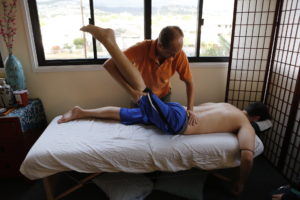Last year, Mira Terdiman ’20 created DISH (Destigmatize Illness, Support Healing) Club. DISH Club aims to normalize conversations around eating disorders and create a safe and healthy environment to discuss mental health. Many club members see DISH as one of few spaces on campus where they can have these discussions. With NEDA (National Eating Disorder Awareness) Week approaching in late February, DISH believes it is important to highlight spaces where issues and experiences regarding eating disorders and mental illness are discussed and addressed.
Through DISH, Terdiman hopes to encourage the Lick community to be more open to discussing these experiences. The club is working on initiatives to include information around eating disorders in the curriculum and to spread awareness outside the classroom about eating disorders and body image issues.
Alex Mader ’22, a member of the club, said he “definitely wants the club to push Lick to better educate about eating disorders and body image in general because there hasn’t been much talk about that within the community.”
Originally, DISH was called “Girls Eat Lunch.” One of Terdiman’s goals for the club was to be as inclusive as possible. She found that the name Girls Eat Lunch might exclude and steer male-identifying students away. The club is meant for any student, regardless of gender or any other identifier.
“It was preventing me from being able to reach out to as many people as I was hoping I could, so I changed the name,” Terdiman said. “And I feel like more boys have come this year.”
Terdiman said that male eating disorders, although less common, can be more stigmatized and isolating, making the name change more vital.
Mader did not attend the club last year because he was self-conscious about going to a club that discussed eating disorders. “But, I feel like this year I realized it shouldn’t be a girls-only thing, and so, I felt more comfortable going,” he said. “After the first time I went, I realized it was a very healthy environment and important to talk about. As a runner, I definitely have faced similar experiences in the past.”
The club has seen a large increase in size this year, almost double the number of attendees from last year, especially with male-identifying students. “We’ve had a couple of meetings with a pretty big group which is cool to see people willing to engage about this stuff,” Terdiman said.
Terdiman focuses the club meetings around current events pertaining to eating disorders and body image. At one meeting, the club watched Mary Cain’s op/ed video for The New York Times detailing her experiences with body-shaming, disordered eating, and abuse as a professional runner for Nike. At another meeting, the club watched and discussed a CrashCourse video describing the biology of eating disorders. These activities are regularly followed by a discussion to unpack people’s thoughts, feelings, and reactions.
Mader said his favorite activity in the club was watching Mary Cain’s video because it created an interesting conversation about body image and how people are expected to look in society. Club members brainstorm ways in which they can bring awareness to the Lick community as a whole.
Teagan Dees ’23, a new member of the club, said she felt comfortable attending meetings because “the environment was very open and supportive.”
Many sophomore members of the club mentioned insufficient mental illness education in the Body Mind Education and Sophomore Health and Wellness courses. After receiving this feedback, Terdiman realized that an important step forward would be bringing the discussions that happen in DISH to a larger scale at Lick. “My club is obviously optional to attend; a lot of the people who come are willing and ready to engage on these issues. Although I think that is great, I also think it is important that everyone become exposed to and involved in these conversations. I think it should be required.”
The club is currently working on a survey to send out to the student body in order to get feedback on their experiences at Lick regarding mental illness, specifically relating to eating disorders and body image. Terdiamn also hopes that the future of BME will include specific sections dedicated to teaching about these issues. Terdiman believes that DISH should not be the only source of dialogue about eating disorders on campus.
Terdiman said “I believe education on eating disorders is extremely relevant and necessary. Although DISH is a good first step, the conversation needs to be expanded to the whole student body.”







